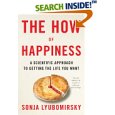After the $700 billion bailout bill was rejected by the U.S. House of Representatives yesterday, the market crash was described by news organizations as the “biggest one-day drop in Dow history” (going back to 1896). This description is kind of ridiculous because it was the biggest point drop, but in percentage terms (7%), it was not one of the top 16 worst days. In fact according to a study by researchers at New York University and Boston University, a statistical analysis using a complex formula concluded that drops of 7% would be expected once every 4.3 years, but we haven’t had one for 7 years. In 1987 the market crashed almost 23% in one day, and recovered very soon afterward.
I always wondered why most TV news programs report stock market moves in point terms without including (at least in the graphic) what the number really means in percentage terms. So it’s hugely misleading to claim yesterday was the biggest drop in Dow history. Comparing the point rise or fall with historical moves up or down becomes more and more misleading the further back you go. But hidden inside this problem is a key secret to wealth.

Exponential growth (green)
(Here’s a mouthful): Any growth that’s proportional to current value is going to be exponential. In other words, if you keep adding a fixed percentage (like 10%), something will grow faster and faster. The growth curve bends upward. Albert Einstein is supposed to have said that the most powerful force in the universe (or the greatest invention in human history) is compound interest.
Add 10% the first year to $100 and you’re adding just $10. But keep going and your money doubles in about 7 years. Then if you have $200 and it grows by 10% that year, you’ve gained $20. Then $400 ($40), $800 ($80)…. and that’s without putting in any additional money.
“The important thing is to find wet snow and a really long hill.”
-Warren Buffett
Something else happened yesterday. An unprecedented full biography was published about the life of Warren Buffett, the second richest man in the world and the most successful investor of all time. It’s named The Snowball . When you find a successful method for something in life, let it snowball. This applies to a lot of things, including investing.
. When you find a successful method for something in life, let it snowball. This applies to a lot of things, including investing.
People who put this magic to work for them get richer and richer. People who let this work against them are going the wrong way on the escalator.
A good example of this working against you is credit card debt. If you’re paying 20% on credit card debt because you didn’t pay off the full balance, you’re building wealth – but unfortunately for someone else, not for yourself.
You want to have some of your money working for you. Then it becomes a money factory.
Credit card interest is the exact opposite. It’s a money toilet. FLUSH!
If you’re making more than you spend and can invest, some of your money is going to be just like little elves laboring away while you sleep. If you’re spending more than you make, and have to borrow, more and more of your money is going to have a panoramic 360 degree view of white porcelain.
There are exceptions to “don’t borrow” of course, like debt that invests in yourself (education), or an “appreciating asset” (a house you plan to live in for at least 5 or 10 years), or even a temporary need.
Some things don’t fall into the category of “needs” – those cute shoes you saw in the store window, that cool car, that sweet electronic entertainment device or other gleaming gizmo. Besides, research shows that acquiring things only gives you a very temporary pleasure boost that doesn’t last. (Research has found that spending your money in other ways can make you happier for longer periods; more on that in a future post.)
“But I don’t have any extra money! Where am I supposed to get money to save and invest?”
In The Automatic Millionaire , David Bach advises that you have to find your “Latte factor”: What do you habitually spend money on that you could easily buy less of, but you don’t give a second thought because it’s only a small amount each time? (going out for lunch every day, soda, snacks, candy, cigarettes) A recent college graduate who finds $5 a day like this can save almost $2000 a year, invested for retirement growing at 10% becomes…drum roll…nearly $1.2 million! If an employer provides 401k matching funds of 50%, it becomes $1.74 million. Pretty expensive coffee!
, David Bach advises that you have to find your “Latte factor”: What do you habitually spend money on that you could easily buy less of, but you don’t give a second thought because it’s only a small amount each time? (going out for lunch every day, soda, snacks, candy, cigarettes) A recent college graduate who finds $5 a day like this can save almost $2000 a year, invested for retirement growing at 10% becomes…drum roll…nearly $1.2 million! If an employer provides 401k matching funds of 50%, it becomes $1.74 million. Pretty expensive coffee!
Looking at it like this helps people to reevaluate those small expenses that they thought didn’t matter. They’re seeing that it’s much better and more secure to save and grow their money. Bach’s book is a basic introduction to building wealth, well-written and very easy to read, presenting a simple and practical approach that works even for people who have no previous financial knowledge. I actually bought 4 copies for family and friends a few years ago when it came out.
Here’s the bad news: Money can’t buy happiness. (Okay, you knew that already.) On the other hand, it seems like a lot of people who know this still spend a disproportionate amount of their time focused on earning money, sacrificing other things in the process. Money can be a big factor in happiness or “life satisfaction” if your struggling to satisfy basic survival needs like food and shelter. Once you get beyond this threshold, however, most research shows that increases in income are only associated with small increases in happiness (depending on how it’s defined). So money has the potential to buy you a certain kind of freedom if handled well, and there are ways to use money that increase happiness, but a lot of people neglect other things – relationships, meaningful activities, positive experiences….
If you think about it, you can use this same snowball formula not just for money but in other areas of your life too. Do what works, and then do more of it. Of course we can all learn new things from science, but you already know a lot about what works for you in various relationships, exercise and health, emotional regulation, attitude, perspective, career/vocation/calling, sense of your contribution, and what you really value in life. Analyze your successes in these and other important areas, and put more attention and effort into those successful approaches. Build on your strengths. You can be rich in more ways than just financial.

Does cultivating gratitude increase happiness? Not very many studies have tackled this question directly, but the evidence so far from psychology research is pretty clear: Yes.
, Sonja Lyubomirsky discusses eight ways gratitude boosts happiness.
![[Circle]](http://www.meaningandhappiness.com/pictures/GoldCircle36i.png)


